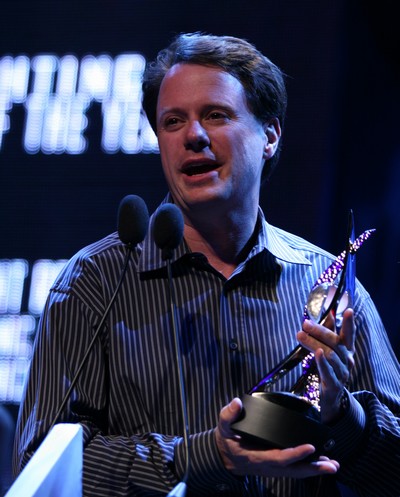
Louis Castle is a member of the Academy of Interactive Arts and Sciences. He works for Electronic Arts.
Q: If you weren't in game development, what would you be doing today?
A: Architecture.
Q: What's your favorite part of game development?
A: The early prototyping. I love the immediacy of the early prototyping phase. It reminds me of my roots in gaming when we could build entire games in just a few months. In a healthy prototyping phase you can try new ideas and discard them, which allows for quality to be found through editing. I think it is virtually impossible to lock a feature list let alone know what will make a game great until you can play it.
Q: How do you measure success?
A: By how happy you are every day you go to work.
Q: What game are you most jealous of?
A: Halo. Halo was the 90% of the game we (Westwood) were trying to make with Renegade. Many of the features of both games were very similar but we did not end up with the game we imagined. It took Halo and Battlefield to bring those visions to life. I'm jealous of the quality of execution and set of features we knew, years earlier, would lead to a great game.
Q: What's the one problem of game development you wish you could instantly solve?
A: Trust in proven development teams. I strongly feel that all organizations try too hard to define the indefinable and too closely monitor and direct the creative process. As an industry, we pay proven talent a ton of money yet we don't trust that they will deliver.
Q: On a practical basis, what's the one thing you're going to tackle next?
A: More efficient prototyping. Simply put, spend less earlier with far fewer restrictions to enable more spending later with a certainty of the product being created.
Q: Tell us one of your recent professional insights.
A: There is such thing as "E" for everyone. With BOOM BLOX our team set out to make a game we wanted to play on the Wii. With Steven Spielberg's vision and consumer knowledge we were able to make a game that also delighted young and old. In the past me and my teams have done similar things on The Lion King and Monopoly but this was the first time we created a brand around a new game that appeals to everyone. I'm inspired by this success and feel confident that the E for everyone includes gamers, like me.
Q: Are games important?
A: Yes, as part of the fabric of entertainment arts.
Q: What's the biggest challenge you see facing the industry?
A: Finding a way to create value for first time purchasers and ways to inspire them to keep their games. Specifically so that people feel their $50 purchase is worth the value and that simultaneously they would not dream of selling it back to the store a few weeks later any more than they would sell DVDs of their favorite movies.
Q: Finally, when you look at the future is there one great big trend that affects everyone?
A: Used games sales and rentals. The cultural impact it makes as well as the financial impact. If our consumers feel our entertainment is disposable and transitory then used sales and rentals will flourish and less resources will be available to dedicate to bringing a high quality experience to the consumer. It is a bad spiral for everyone. I don't blame consumers, it is our industry that needs to create and deliver the value.